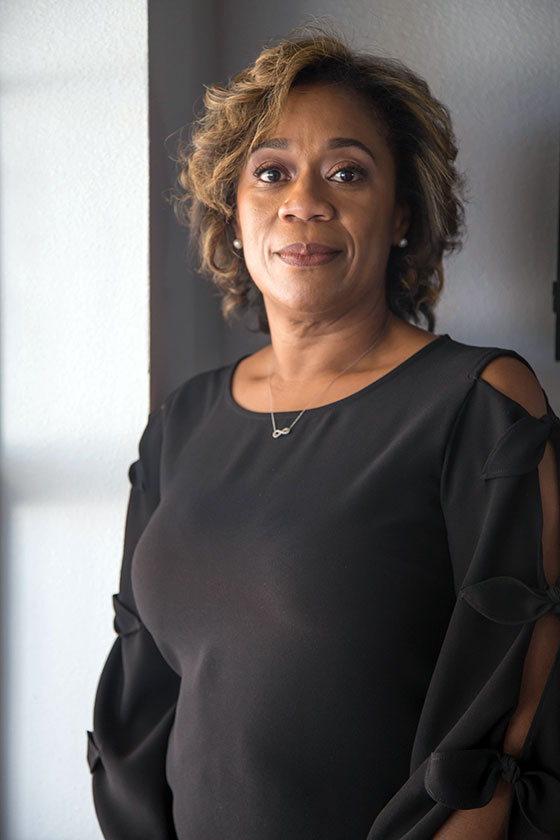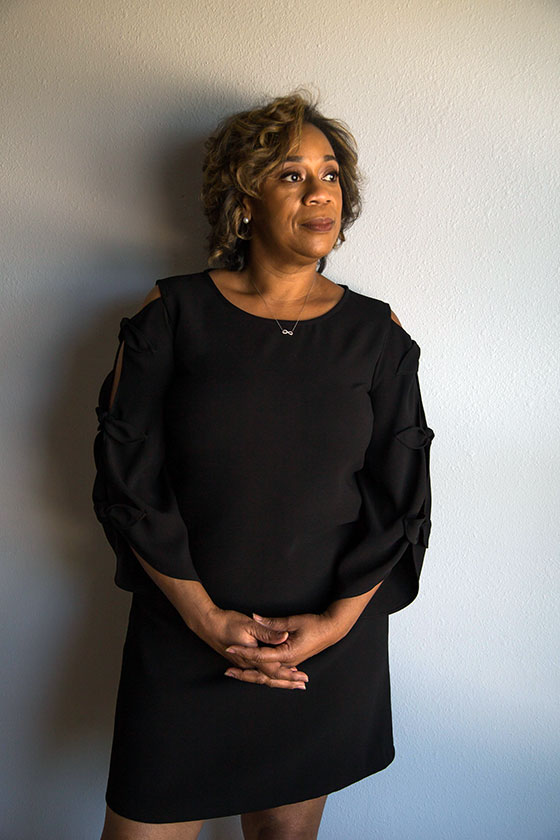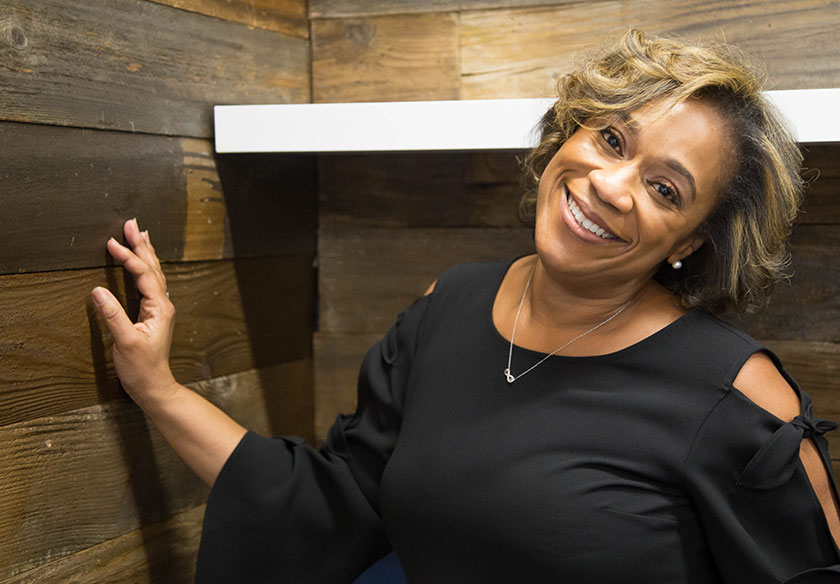-
STARTING OVER AFTER ABUSE
Through hard-fought second chances, Mia left violence and prison behind to begin a new life.
by Grayson Pope
Mia met the man who would become her husband when they were attending the same junior college. She was 16; he was 21.
They soon married and moved to Alabama where they both attended college on scholarships, hers to study nursing and his for track. Her husband was a world-class runner but sustained a career-ending knee injury in 1992 before leaving college.
That's when things changed.
ESCALATING VIOLENCE
One day, during his recovery, he threw a remote so hard at Mia that it broke her nose. "He would hit me, kick me, hold a gun to my head, lock me in the house. One time he set the house on fire," Mia says. Fortunately, she convinced him to put it out before anyone got hurt.
"It got worse and worse," she recounts. "We got in a fight before, where he pushed me down. I hit my head on the bedrail, where the metal part of the frame was. And I don't even know how long I was out, but I was out long enough that when I woke up it was dinnertime. The only thing I could think of was, 'I need to fix dinner.'"
Despite all the trauma, she never called the police. Up to this point, her husband hadn't physically abused any of her three children. But when her son turned 8 he started stepping in to protect Mommy. One day Mia's husband beat their son so badly that in the moment the boy lost control of his bodily functions.

"That's when, in my head, I said, 'I gotta do something,'" Mia says. "He is gonna kill me, or he's gonna kill my son." Mia stabbed her husband, then called her parents to come and get the children so they wouldn't have to see her being arrested and taken away. Then, she says, "I called the police, and they came and got me." Her husband didn't die from the stab wounds.
'I gotta do something. ... He is gonna kill me, or he's gonna kill my son.'
AN UNLIKELY ADVOCATE
Mia was arrested and incarcerated in the county jail for the next year, before being transferred to prison for a 16-year sentence in 2000. After her husband recovered, he got their children from Mia's parents. "While I was in prison, he wouldn't let me call the children. He wouldn't let them see me," she says.
Mia was devastated, but she remained hopeful. She filed for divorce and became a model prisoner, keeping her nose clean and doing Bible studies. The prison's warden noticed, and after hearing Mia's story, became her unlikely advocate.
The warden helped her get in front of a judge to explain her story in hopes of seeing Mia released. Miraculously, that's just what happened. "They suspended the rest of my sentence," says Mia, "so I ended up doing two of those 16 years."
STARTING OVER

Mia was released in August of 2002. Her now ex-husband had moved the family to Texas, so Mia followed. She figured she would just pick up where she left off. "But I realized that I couldn't get a job," she says. "JCPenney's hired me. But I ended up getting fired because they found out that I had a criminal background."
It took a while before finding work doing odd jobs like installing wiring for traffic lights and working in a call center. She eventually got a job as a manager at Subway. "I saved enough money to get an apartment," Mia says, "but then I realized that some apartments wouldn't let you live there because you had a criminal background."
She remembers how frustrating it was: "I did my time. I did everything they told me to do, and I'm still living as if I'm a prisoner. The bad day I had in my past should not predict everything that happens in my future. And that's what I learned going to prison, that society has said that your past negates anything you want to do in the future."
'I did my time. I did everything they told me to do, and I'm still living as if I'm a prisoner.'
GAINING MOMENTUM
One day Mia's pastor, knowing her nursing background, asked why she was working at Subway. She replayed her story, including the license she received as part of her nursing degree. "Well, can you work somewhere else with your license?" he asked.
"I don't know. Every hospital I've ever gone to, every place I apply, they tell me because I have a criminal background I couldn't," she told him. But her pastor encouraged her not to give up and to try telling her story in the interview process.
Mia's first interview following that conversation was with a scientific laboratory for a phlebotomist position. During the interview, she remembers saying, "I'm willing to start at the bottom. This is my story. I need a second chance from somebody. I know patients. I can assess. I can read the results, and I can tell you what's a good result, what's a bad result."
She landed the job. From there she became a lead phlebotomist, then a manager, then a regional manager in quality control, before eventually becoming the organization's vice president of operations. With her work life stabilized, she fought to regain custody of her children and won.

'This is my story. I need a second chance from somebody.'
UNLOCKING SECOND CHANCES
Through all the ups and downs, Mia learned a lot about the reentry process. "When I got out, no one would hire me. No one would let me live where they lived, until they got to know me." So, she decided to help others like her.
"I've started my own nonprofit organization where we help people who get out of prison," Mia says. "We help people who don't have money. We help people whose children or parents are in prison or places that have low or no income. And I use my nursing background to help." Through this work, she started partnering with her local reentry and central health boards.
Today, Mia runs her nonprofit and works as the chief of staff of one of the largest African-American churches in the world. Her children are now adults. Mia says, "We have wonderful, wonderful relationships. I have four grandchildren, and my life is free enough now that I want to be able to help other people."
'My life is free enough now that I want to be able to help other people.'